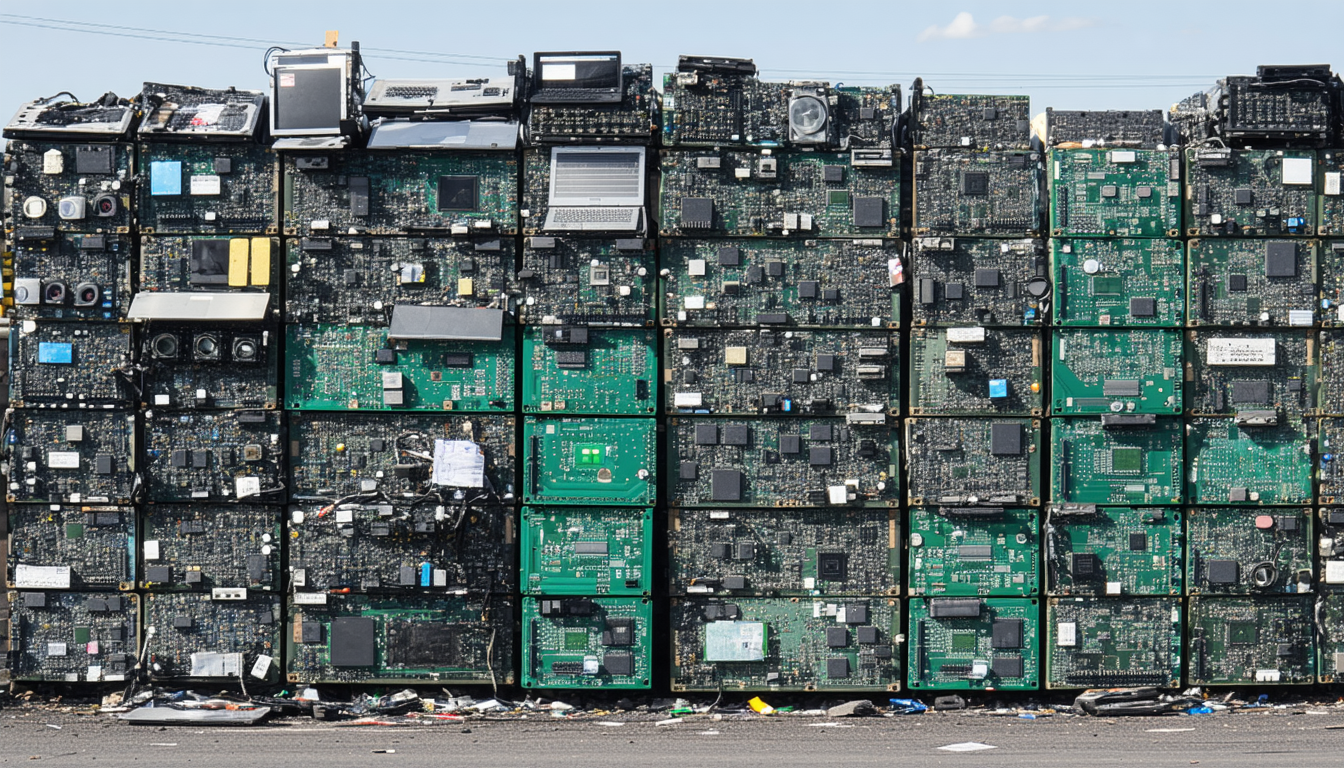In an era dominated by technology, electronic waste, or e-waste, has become a pressing environmental challenge across the United States. With millions of devices discarded annually, the need to locate responsible e-waste sites near me is more urgent than ever. This article explores the current state of e-waste management in the US, highlights key disposal locations and programs, and discusses the broader implications of improper e-waste handling. From federal initiatives to local recycling centers, we uncover the latest developments and provide actionable insights for safe disposal.
The Rising Tide of E-Waste in the United States
The US generates over 6.9 million metric tons of e-waste each year, according to a 2022 report by the Environmental Protection Agency (EPA). This staggering figure includes discarded smartphones, laptops, and other electronics that often contain hazardous materials like lead and mercury. Without proper disposal, these toxins can seep into soil and water, posing risks to both the environment and public health.
As technology evolves at a rapid pace, consumers frequently upgrade devices, contributing to the growing pile of obsolete electronics. The challenge lies in ensuring these items are recycled responsibly rather than ending up in landfills. Finding reliable e-waste sites near me has become a critical step for individuals and businesses alike.
Key Programs and E-Waste Sites Near Me
Across the US, various programs and facilities are stepping up to address the e-waste crisis. Many states have implemented laws requiring manufacturers to offer free recycling options. For instance, California’s Electronic Waste Recycling Act mandates collection points for covered devices, making it easier for residents to find local drop-off locations.
- EPA’s Plug-In to eCycling Program: This initiative partners with retailers and manufacturers to provide accessible recycling options. Their website offers a searchable database to locate e-waste sites near me.
- Best Buy Recycling: With over 1,000 stores nationwide, Best Buy accepts a wide range of electronics for free recycling, regardless of where they were purchased.
- Local Government Facilities: Many municipalities host periodic e-waste collection events or maintain permanent drop-off centers. Check your city’s website for schedules and locations.
These resources ensure that Americans have multiple avenues to dispose of electronics safely. However, accessibility remains a concern in rural areas where facilities may be scarce.
Why Proper E-Waste Disposal Matters
Improper handling of e-waste can have devastating consequences. When electronics are dumped in landfills, toxic substances can contaminate groundwater, affecting ecosystems and human health. Additionally, valuable materials like gold, silver, and copper—worth billions annually—are lost when devices aren’t recycled.
According to Dr. Sarah Bennett, an environmental scientist at the University of California, “Recycling e-waste not only prevents pollution but also conserves resources by recovering rare metals. It’s a win-win if we can increase public participation.” Her statement underscores the dual benefits of responsible disposal practices for both the planet and the economy.
The impact extends to stakeholders like manufacturers, who face increasing pressure to design sustainable products. Consumers also play a vital role by choosing certified recyclers over informal disposal methods.
Challenges and Future Outlook
Despite progress, significant hurdles remain in managing e-waste effectively. One major issue is public awareness—many Americans are unaware of nearby recycling options or the dangers of improper disposal. Additionally, inconsistent state regulations create confusion about what can be recycled and where.
Looking ahead, experts predict stricter federal policies to standardize e-waste management. Innovations in recycling technology could also make processing more efficient, reducing costs for consumers and businesses. Advocacy groups are pushing for extended producer responsibility laws, which would hold manufacturers accountable for their products’ end-of-life impact.
On the flip side, some argue that such regulations could burden small businesses with compliance costs. Balancing environmental goals with economic realities will be key to shaping future policies. As this debate unfolds, individuals can take immediate action by locating trusted e-waste sites near me through online tools or community resources.
Conclusion
E-waste poses a complex challenge in the United States, with millions of tons generated yearly threatening environmental and public health. By leveraging programs like the EPA’s initiatives and retailer partnerships, Americans can find reliable e-waste sites near me to ensure safe disposal. The significance of these efforts cannot be overstated—proper recycling protects our planet while conserving valuable resources. As policies evolve and awareness grows, collective action will be crucial in tackling this issue head-on. Start by finding a local facility today and contribute to a sustainable future.
Frequently Asked Questions (FAQs)
1. How can I find e-waste sites near me in the US?
Use online tools like the EPA’s eCycling database or check with local government websites for drop-off locations and events. Retailers like Best Buy also offer nationwide recycling services.
2. What types of electronics can I recycle?
Most facilities accept items like smartphones, laptops, printers, batteries, and TVs. Always confirm accepted items with your chosen location as policies vary.
3. Is there a cost to recycle e-waste?
Many programs offer free recycling, especially for common devices. However, some specialized items may incur fees depending on state laws or facility rules.
4. Why is recycling e-waste important?
Recycling prevents toxic materials from polluting the environment and allows recovery of valuable metals, reducing the need for new resource extraction.
5. Are there penalties for improper e-waste disposal?
In some states, illegally dumping electronics can result in fines or legal action. Check local regulations to ensure compliance with disposal guidelines.

